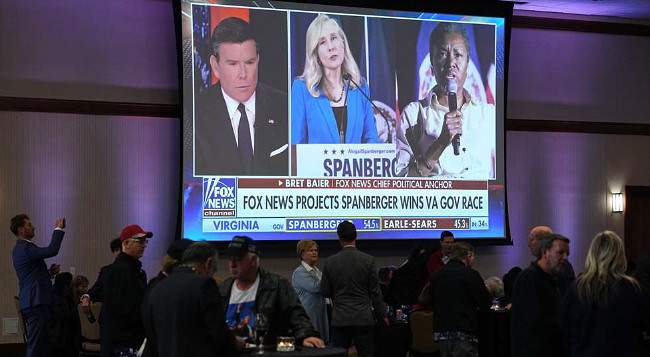

An Off-Year Election of Setbacks for Freedom

By Frank Miniter. Nov 5, 2025
Data Source
Early in the evening last Tuesday, on-air personalities began to call Virginia's governor race for Abigail Spanberger (D) over Winsome Earle-Sears (R). Despite refusing to call for Democratic attorney general candidate Jay Jones to drop out of the race after texts surfaced of him fantasizing about the shooting of a political opponent and the death of his children, voters still elected both Spanberger and Jones.
On the red-and-blue maps the news anchors stood in front of, this trend continued into New Jersey, where Mikie Sherrill (D) defeated Jack Ciattarelli (R) and, up in New York City, where democratic-socialist Zohran Mamdani (D) trounced Andrew Cuomo (I).
All of these races were different—and will have very different impacts on citizens' Second Amendment-protected rights—but a far-left, very anti-gun sweep was a common theme.
In Virginia, a majority of voters rejected a candidate for governor who stands so devotedly for individual freedom that she graced the cover of America's 1st Freedom twice. Voters also gave anti-Second Amendment politicians a clear majority in the Virginia House of Delegates.
In 2026, Virginia's gun owners can expect state legislators in Virginia to send gun-control bills to Spanberger's desk. Unlike the state's current governor, Glenn Youngkin, Spanberger is likely to sign any gun bans and other restrictions on this right that she can. Indeed, before election day, Spanberger said she would have signed the dozens of anti-gun bills—including semi-automatic gun bans and magazine-size restrictions—that Gov. Younkin vetoed. Spanberger also called a ban on commonly owned semi-automatic firearms "common sense." She even once served as a volunteer for a local gun-control group.
As for keeping Virginians safe, Spanberger's preferred policies would disarm law-abiding Virginians while backing the types of laws that turned the District of Columbia into the murder capital of the United States. Her policies would disempower women who can't afford armed security—and every other law-abiding citizen—while blaming American freedom for the violence committed by criminals.
The same can be said for New Jersey's gov. elect. The difference is that New Jersey already has many of the most onerous restrictions on this civil right in the nation, whereas Virginia has thus far managed to keep much of its freedom despite very close calls. Keeping the freedom Virginians' currently have will now take strong political opposition and lawsuits. Joining and contributing to the NRA, which is headquartered in Fairfax, Va., is now more critical than ever.
As for New York City, Andrew Cuomo has long attacked this freedom and this Association. If he had won, it would not have been to the benefit of those who cherish this basic human right. Much of the wrangling for this freedom in each of these places will take place in courtrooms.
So, America's 1st Freedom asked before this election if voters will choose "freedom or control?" For various political reasons, many voters chose control. Still, as we also noted, the Second Amendment was not treated as a major issue in these elections by the media or the anti-gun candidates. It should have been in both Virginia and New Jersey, but each of the victors in those races for governor underplayed their antagonism toward this fundamental civil right. Gov.-elect Spanberger even ran ads casting herself as a law-and-order candidate.
We'll keep you posted on how these incoming governors and legislators attempt to impact citizens' Second Amendment rights next year.
![]()
























